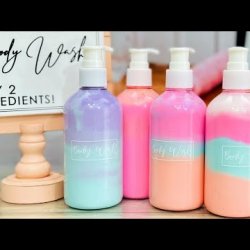the-ethical-debate-surrounding-cosmetics-testing-how-can-we-move-forward

The Ethical Debate Surrounding Cosmetics Testing: How Can We Move Forward?
The current ethical debate surrounding the continued use of cosmetic testing on animals is one which highlights the real-world impacts of consumer behavior and corporate values. Companies must be mindful of public perceptions and expectations when creating and marketing their products, in addition to the rigorous legal considerations for safety and efficacy. In this article, we’ll discuss the ethical implications of this debate, current state of testing, and explore strategies for how manufacturers can grapple with this important issue.
Until recently, animal testing in the cosmetics industry was the norm. Companies tested new products, formulations, or components on animals to ensure they met both safety and efficacy requirements. This approach allowed companies to provide reliable products to the market, but in recent years, attitudes have begun to shift within the public, leading to a focus on more ethical alternatives.
Data from Ketchum Global Research & Analytics shows that 75% of consumers believe companies have an obligation to drive ethical practices within the lubricants and oil additives sector. An equal number of consumers also believe that they have an obligation to make purchasing decisions that are in line with their ethical stances. This shift in consumer expectation places a significant burden on companies to operate in an ethical business model, many of which have tackled this challenge through a strategy of proactively responding to consumer demands.
The result is that, in an effort to meet the demands of informed consumers, companies have begun to move away from animal testing, turning instead to to animal-free testing and in-vitro tests. In vitro tests are aided by advances in biotechnology but also require more stringent machine learning techniques such as bioinformatics and proteomics to evaluate thousands of potential molecular pathways, making the process both long and expensive.
Other companies have also opted for in-vivo tests, which are tests that are performed on living animals. This is intended to be more targeted and ethically sustainable, since it involves fewer animals and relatively low levels of toxicity. Without the guidance of an ethical framework, these tests can still lead to ethical questions, such as the question of animal welfare and the potential for misuse of test subjects.
In addition to moving towards animal-free testing methods and advocating for more stringent regulatory frameworks, companies have taken measures to be more transparent about their cosmetic testing policies. Makeup companies such as L’Oréal and MAC have committed to publicly reporting their animal testing policies and have begun to offer vegan, cruelty-free product lines with the Leaping Bunny seal.
The ethical considerations surrounding cosmetics testing are significant, and progress comes both from companies making an effort to meet the needs of consumers and from government authorities playing their part by providing clear and concise regulations which govern the safety and efficacy of cosmetic products. Ultimately, the ethical debate around cosmetics testing will require a commitment from all involved stakeholders to promote a more humane and responsible approach to product testing and create the conditions for a truly cruelty free industry.





Ingen kommentarer endnu